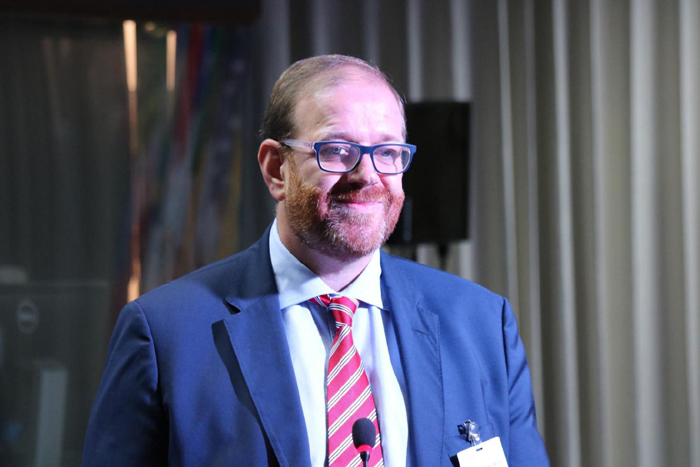The 2017 meeting of the Inter-American Board of Agriculture (IABA) provided an opportunity for participants to learn more about the founder of IICA, whose legacy helped shape the future of agriculture in the Americas.

San Jose, 9 November 2017 (IICA). “A strong commitment to science, productivity, and particularly farming.”
That was how the representative of DuPont Pioneer Latin America, Ricardo García de Alba, summed up the legacy of Henry A. Wallace, a U.S. agricultural expert who founded the Inter-American Institute for Cooperation on Agriculture (IICA) in 1942.
De Alba delivered the keynote address at the Nineteenth Regular Meeting of the Inter-American Board of Agriculture (IABA), which was held at IICA Headquarters in San Jose, Costa Rica. He described Wallace’s legacy and how he influenced the future of the hemisphere’s agriculture sector.
He explained that Wallace played a key role in efforts to increase maize production, and highlighted his contribution to technological innovation: by developing hybrids that offered higher yield potential, he improved the quality of life of the farmers.
“As a child, he developed a passion for science and a desire to place it at the service of farmers. By combining two different lines of maize, he achieved astronomical yields and excellent quality. He devoted all his energies to taking maize yields to the next level, tripling them and sparking a revolution in global production. Back then, the amount produced in the U.S. Midwest today would have required a planted area the size of Argentina, Paraguay, Uruguay and Chile combined,” de Alba observed.
The representative of DuPont Pioneer also underscored Wallace’s constant efforts to safeguard farmers’ well-being, and his vision of the future that inspired him to found an agency like IICA, which has already racked up 75 years of history and is on the cutting edge of agricultural development, meeting its member countries’ needs by providing them with technical cooperation of the highest quality.
“As U.S. Secretary of Agriculture (1933-1940), he formed a close bond with farmers, especially the least fortunate. He developed policies designed to improve their livelihoods, ensuring that none went to bed hungry or wondering what the next day would bring,” de Alba added.
In recognition of his dedication and passion for agriculture, a bust of Wallace was unveiled at IICA Headquarters to immortalize him and ensure that the sector never forgets the debt it owes him.
More information: hector.iturbe@iica.int











